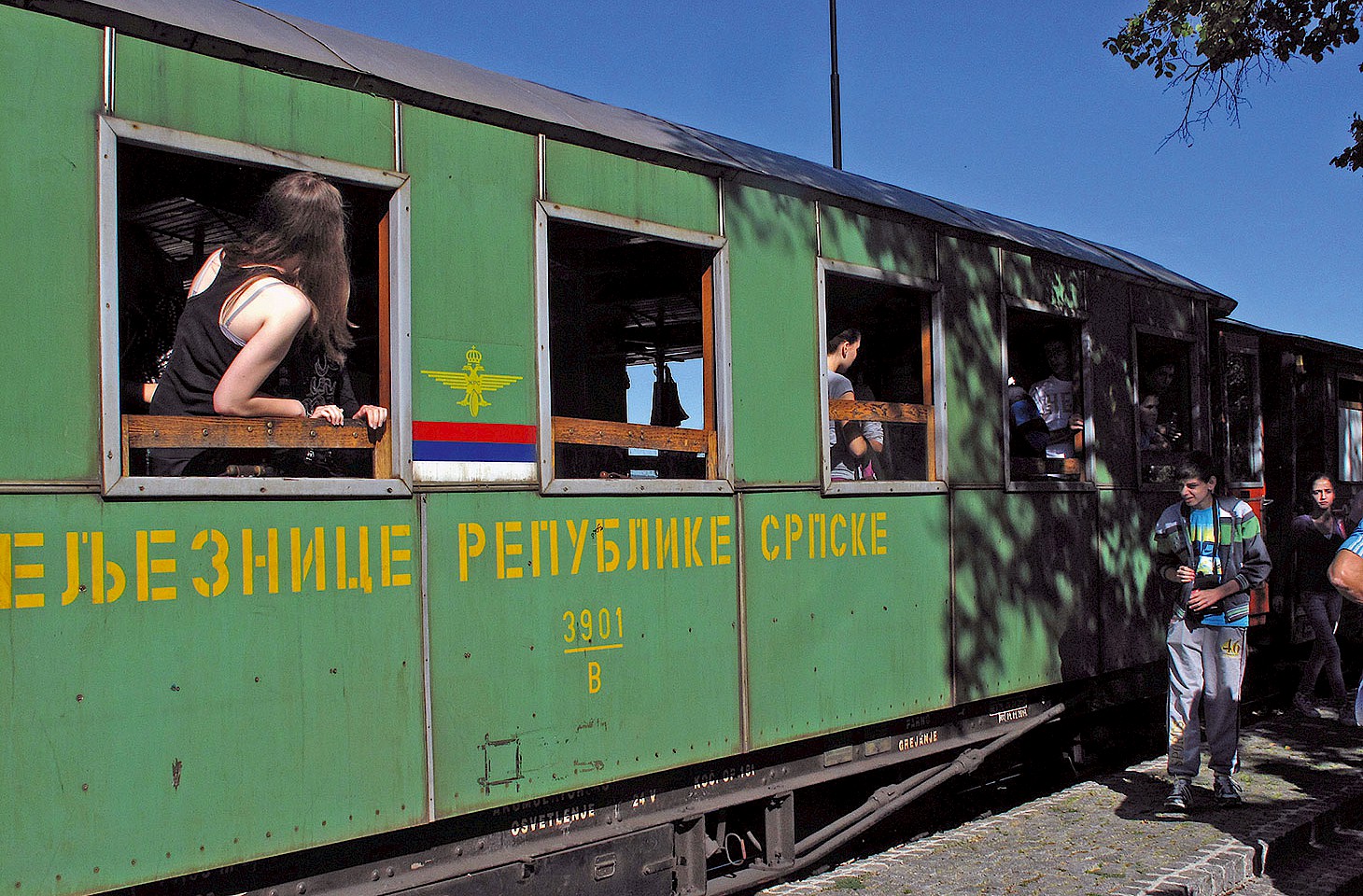In those days, we knew Kosovo Polje only as a place that existed by night. Northbound the Akropolis Express would stop there just before midnight on its long journey across Europe from Athens to Bavaria. A train full of men travelling to Germany in search of jobs, money and a little freedom. Kosovo Polje was a place for the tapping of wheels, a junction where the muffled voices of foreign men might wake us in the night as they checked the train for we knew not what. It was not, on the whole, a place for passports. This was Yugoslavia and oftentimes we could travel from Skopje to Ljubljana without any checks on documents.
The southbound train through the Balkans stopped at Kosovo Polje too, but at an equally uncomfortable hour. The hazy chaos of the overnight train subsided into sleep only in the small hours. At last there is just the train. Screech of steel on rusty curves, a glimpse through the window of pennants of mist across the valley, shades of rich Athos red as the moon catches the solid walls and domes of the monastery at Zica, and then in the hills little snow demons mark our trail as the train creeps over a pass. There are occasional stops. Fitful sleep is punctuated by station names that mean nothing to us: what is Mitrovica beyond a spot where the night train pauses?
As night gives way to dawn, brave is the traveller who is the first to disturb neighbours still stacked in slumber in their couchettes. So Kosovo Polje at seven in the morning remained as mysterious a place on the journey to Athens, as ever it did at midnight on the return journey.
It came as a surprise to find that the place that existed only as a stop on the night train really has a daytime persona too. It is, to be fair, little more than a railway junction, a rather grey place that seems somehow stranded on a floodplain west of the Kosovan city of Pristina / Prishtine. A sprawl of houses around a wasteland of deserted railway tracks. A monstrous signal box, that was once white, towers over the station. Today it is grey and sports an ugly array of antennae. The canopy on the platform leaks. The unappealing high rise blocks in the city that aspires to become, before too long, capital of an independent Kosovo, are visible in the far distance. Closer to hand, a few men stand around a rusty open oil drum, where burning rubbish provides a little warmth.


